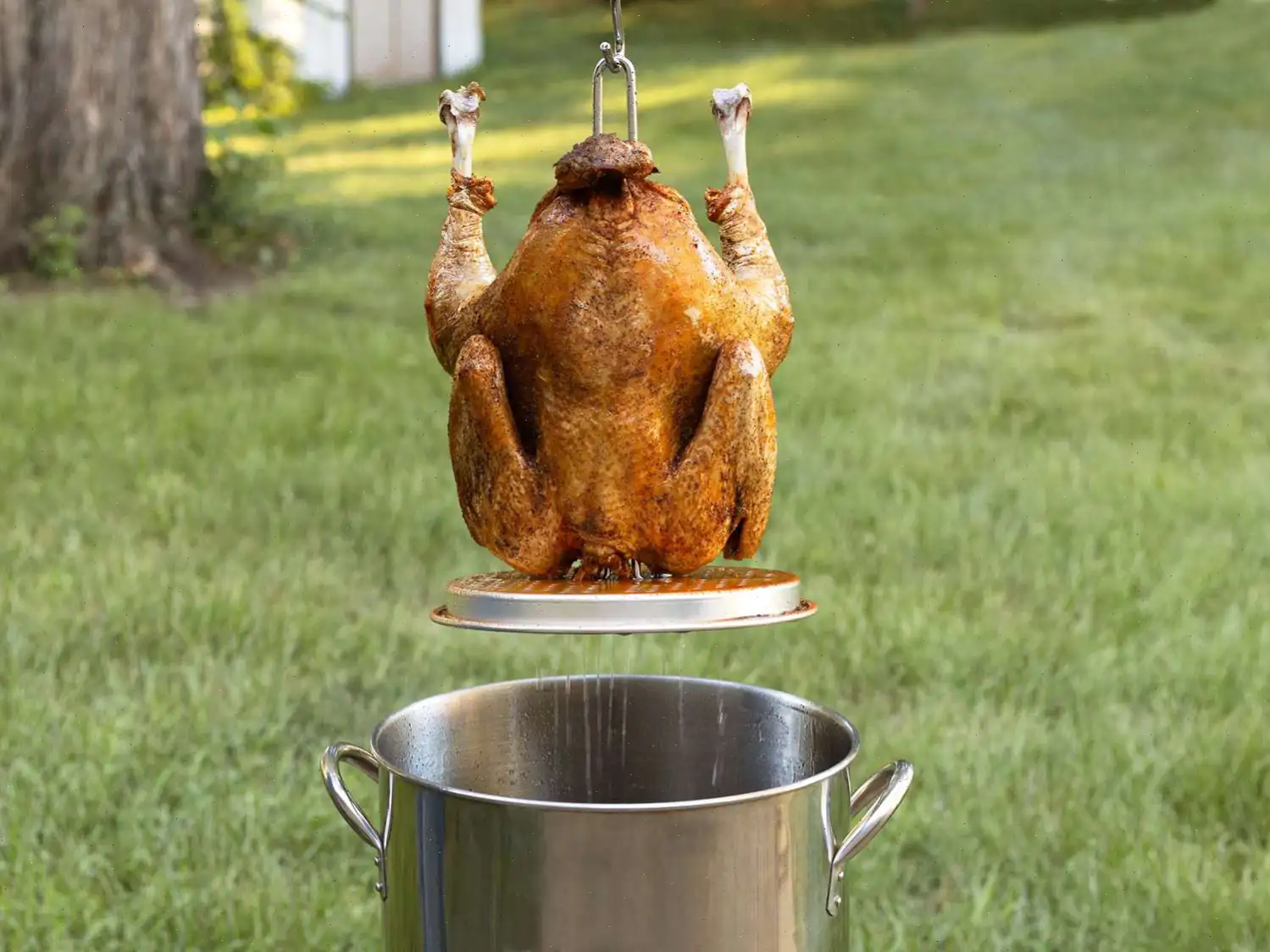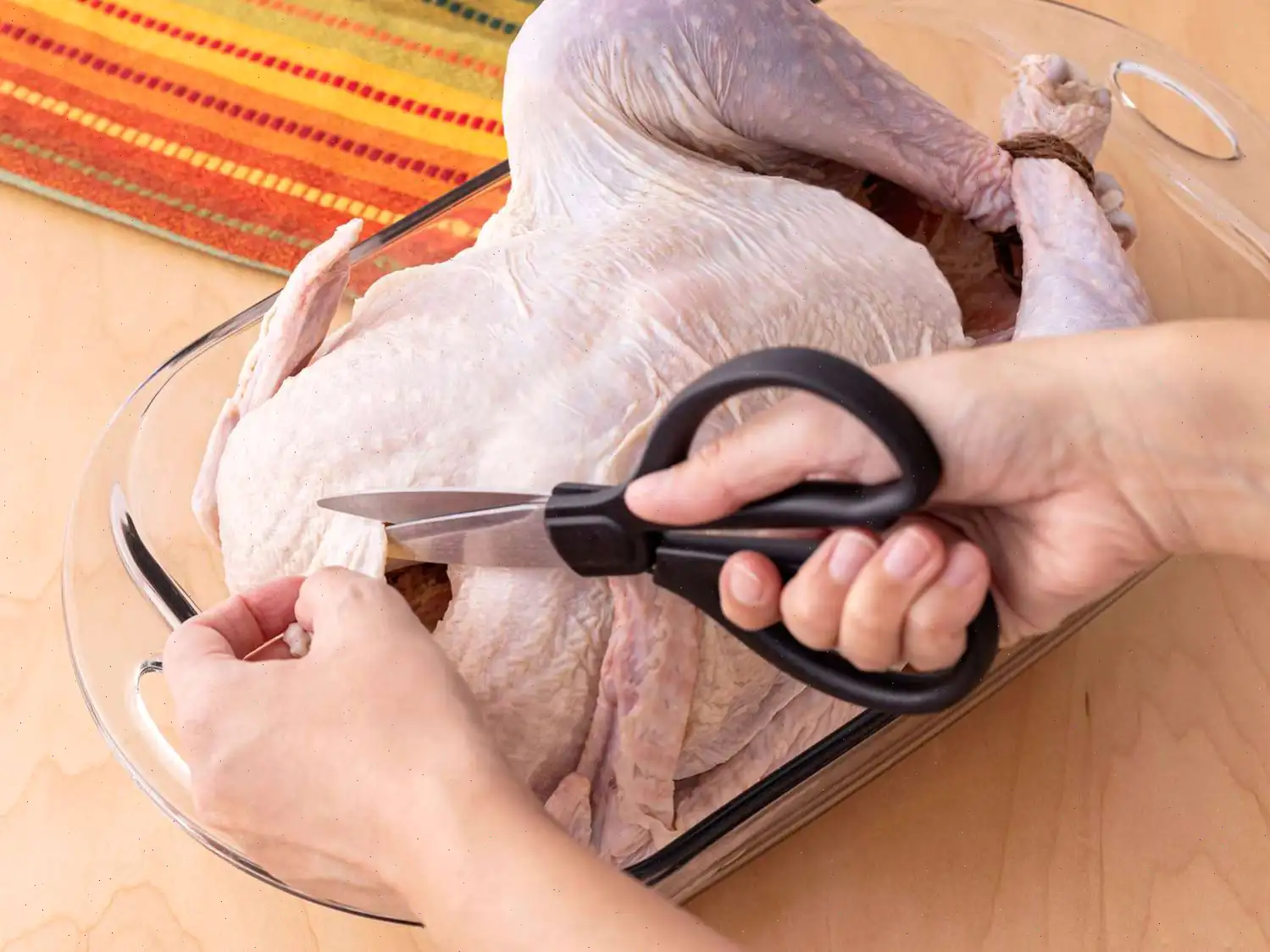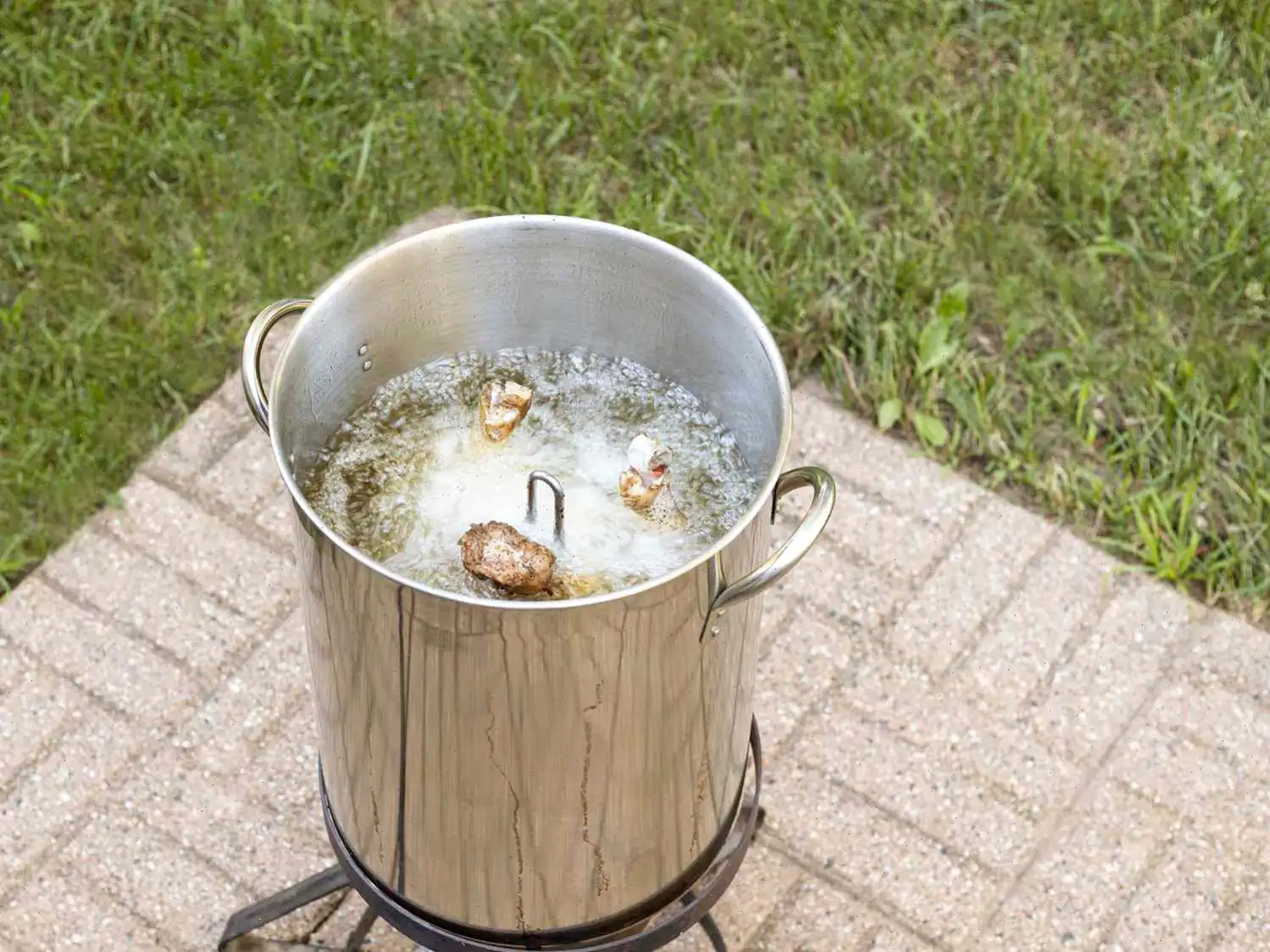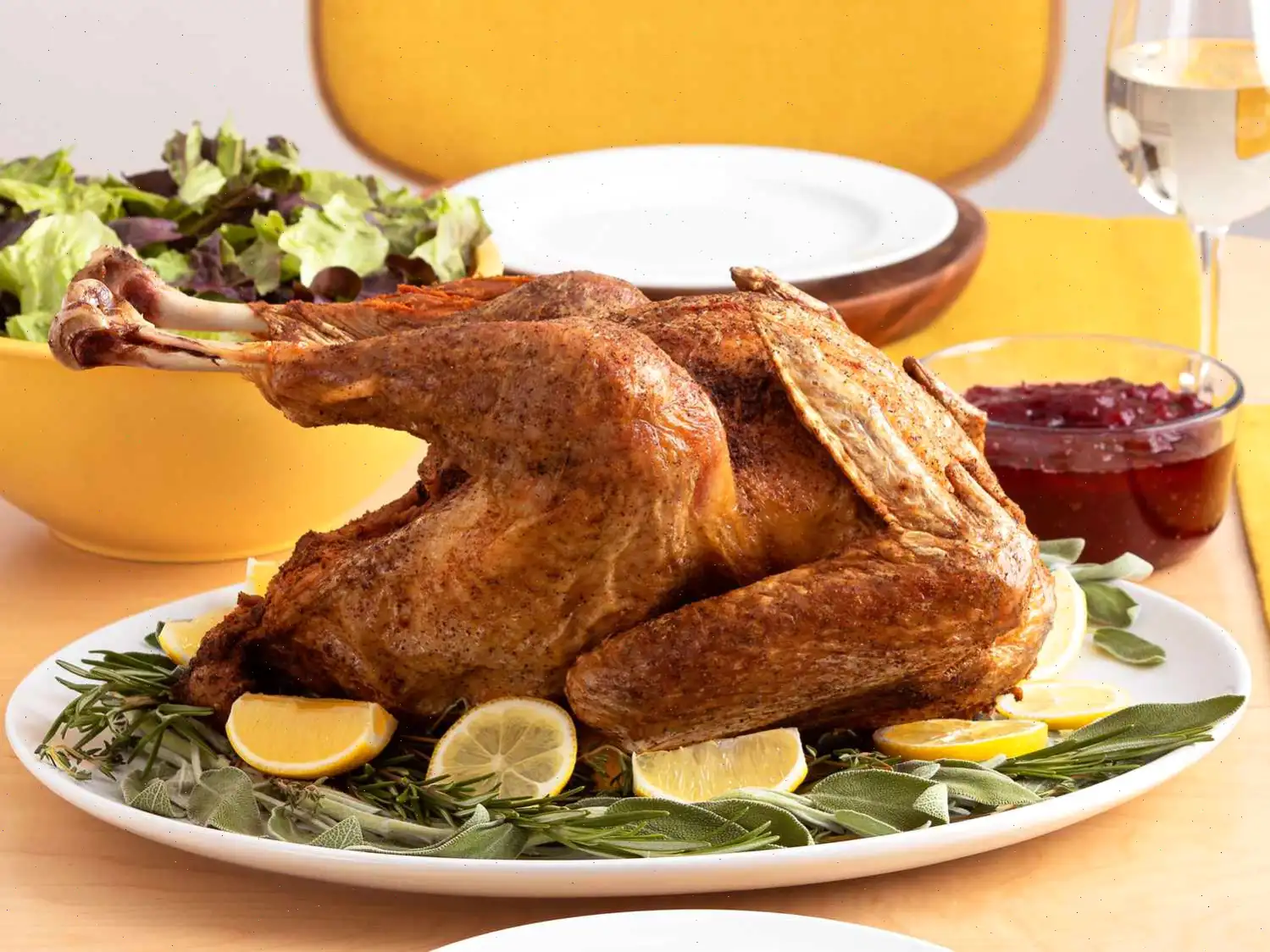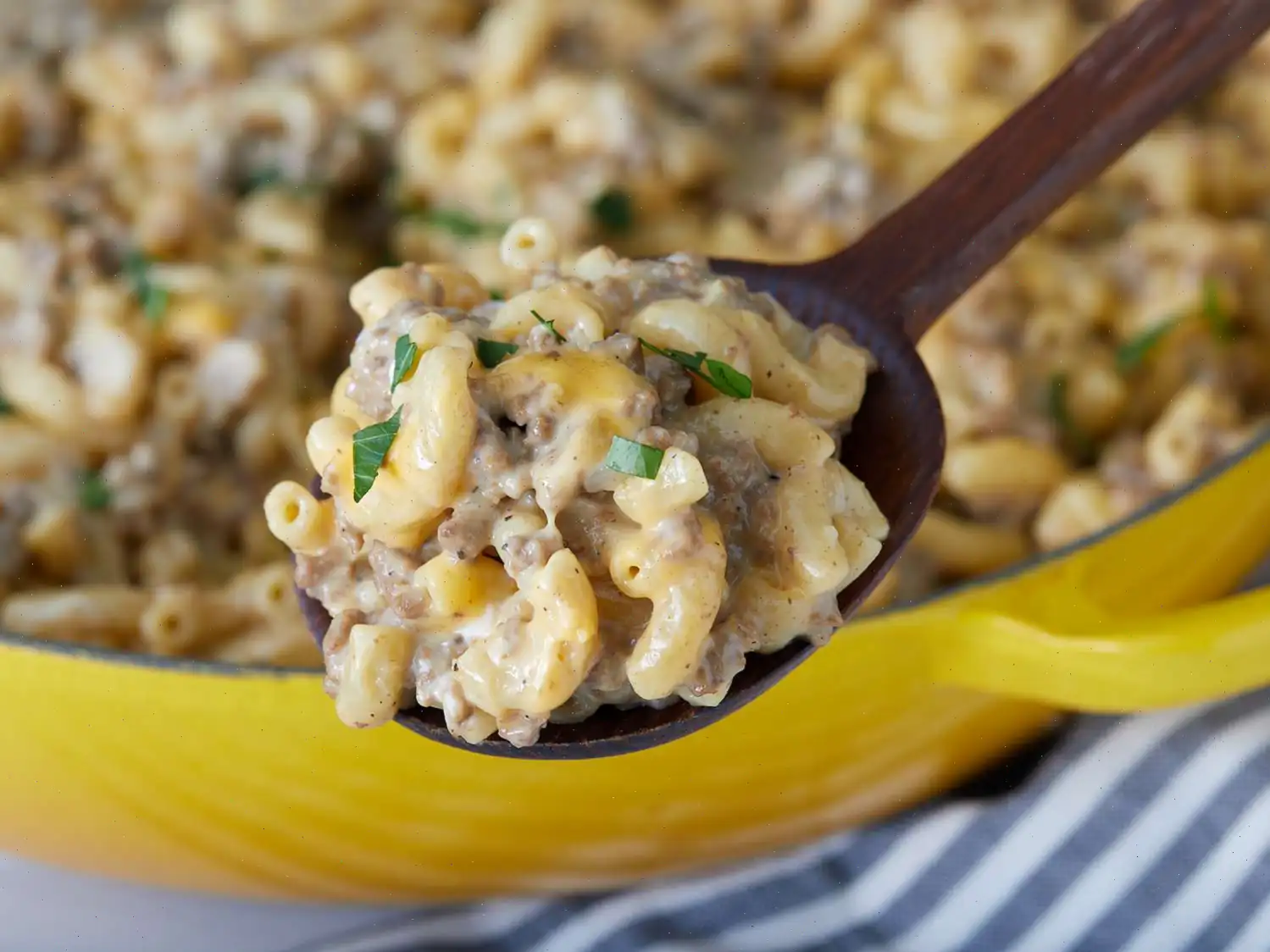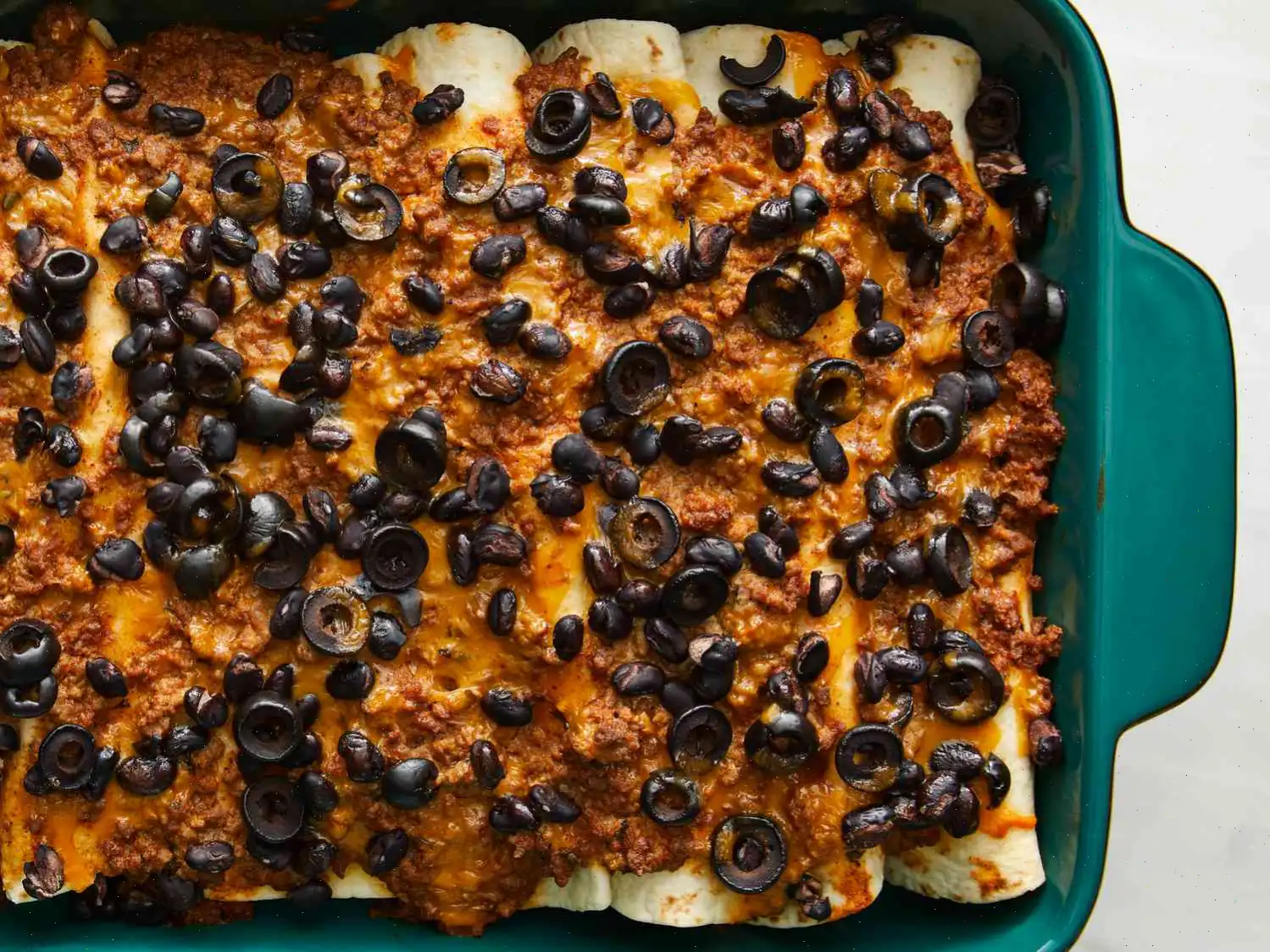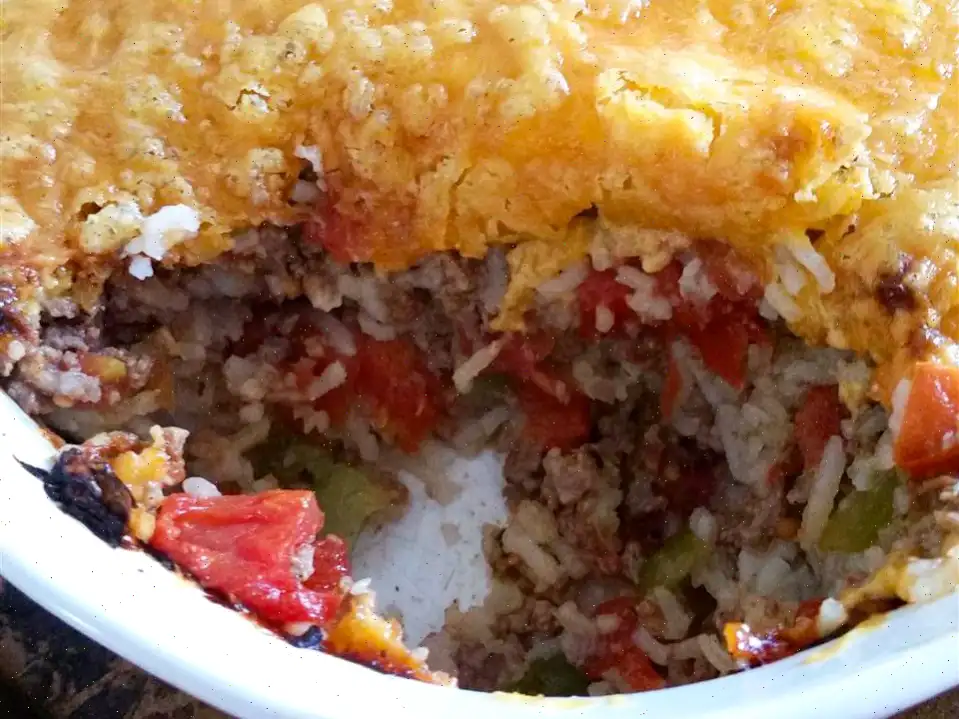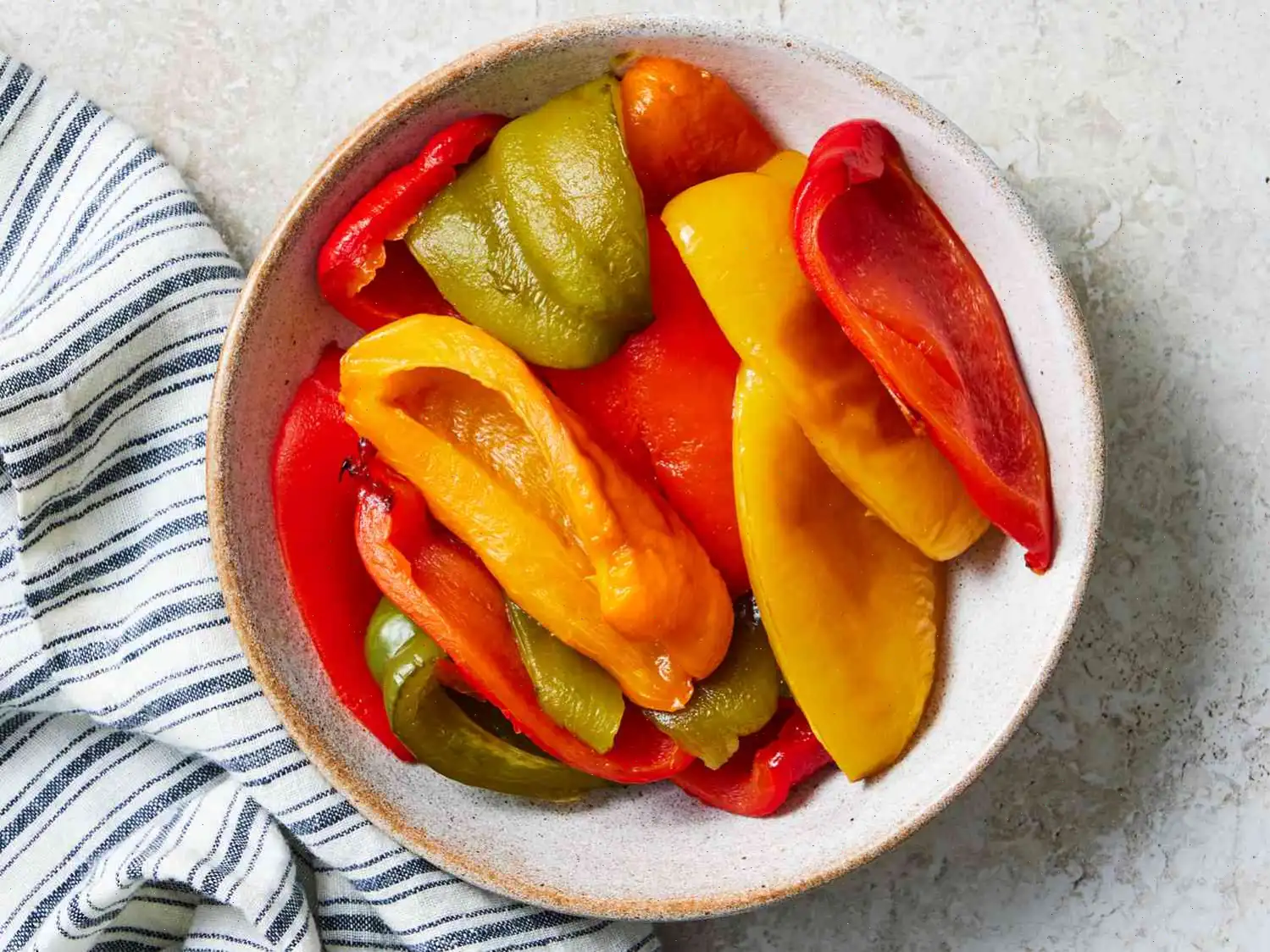
Simple Deep Fried Turkey Recipe
This deep-fried turkey recipe is simpler than you might think, and its a showstopper for any meal. Whether you're preparing it for a holiday or a weekend gathering, follow these steps for a perfectly crispy and flavorful bird.
Ingredients
- 3 gallons peanut oil for frying
- 1 (10-pound) whole turkey, neck and giblets removed
- 1 tablespoon salt, or to taste
- 1 tablespoon ground black pepper, or to taste
Instructions
Follow these steps for a delicious deep-fried turkey:
Step 1: Prepare the Fryer
Set up your turkey fryer outdoors in a safe area. It should be far from any buildings or flammable objects, and ideally on dirt or pavement. Always have a fire extinguisher nearby for safety. Heat the oil to 350F (175C).
Step 2: Prepare the Turkey
Ensure that your turkey is completely thawed. Trim any excess skin from around the neck area and make sure the neck opening is at least 1 inch in diameter. Pat the turkey dry using paper towels.
Step 3: Season the Turkey
Generously rub the turkey with salt and pepper on both the inside and outside. You can add extra seasonings as per your taste, but this simple seasoning will let the crispy skin and juicy meat shine.
Step 4: Fry the Turkey
Place the turkey into a drain basket, neck-side down. Slowly and carefully lower the turkey into the hot oil. Ensure the turkey is fully submerged. Maintain the oil temperature at 350F (175C). Fry the turkey for 3.5 minutes per pound. For a 10-pound turkey, this will be about 35 minutes of frying.
Step 5: Check for Doneness
After frying, remove the turkey basket from the oil and allow it to drain. Insert a meat thermometer into the thickest part of the turkey's thigh. The internal temperature should reach 180F (80C). Let the turkey rest for 15 minutes before carving to ensure the juices stay locked in.
How Long to Deep Fry a Turkey
The cooking time is about 3.5 minutes per pound of turkey. For a 10-pound bird, thats roughly 35 minutes. Always check the internal temperature to be sure its fully cooked.
Brining (Optional)
While this recipe doesnt require brining, you can brine your turkey beforehand for extra flavor. A simple brine, like Matts Fried Turkey Brine, can add a nice balance of sweetness and savory notes to the turkey.
Oil Temperature
Its crucial to maintain the oil at 350F (175C) throughout the cooking process. This temperature ensures a crispy exterior and juicy interior. Be sure to check the temperature with a thermometer as you cook.
What to Serve with Deep-Fried Turkey
This deep-fried turkey pairs wonderfully with traditional holiday sides. Try pairing it with:
- Green Bean Casserole
- Cranberry Sauce
- Mashed Potatoes
For more side dish ideas, check out these collections:
Nutrition Facts
Each serving of deep-fried turkey (based on a 12-serving recipe) contains:
- Calories: 568
- Total Fat: 27g (34% DV)
- Saturated Fat: 8g (39% DV)
- Cholesterol: 224mg (75% DV)
- Sodium: 768mg (33% DV)
- Protein: 77g (153% DV)
- Iron: 5mg (29% DV)
Additional Tips
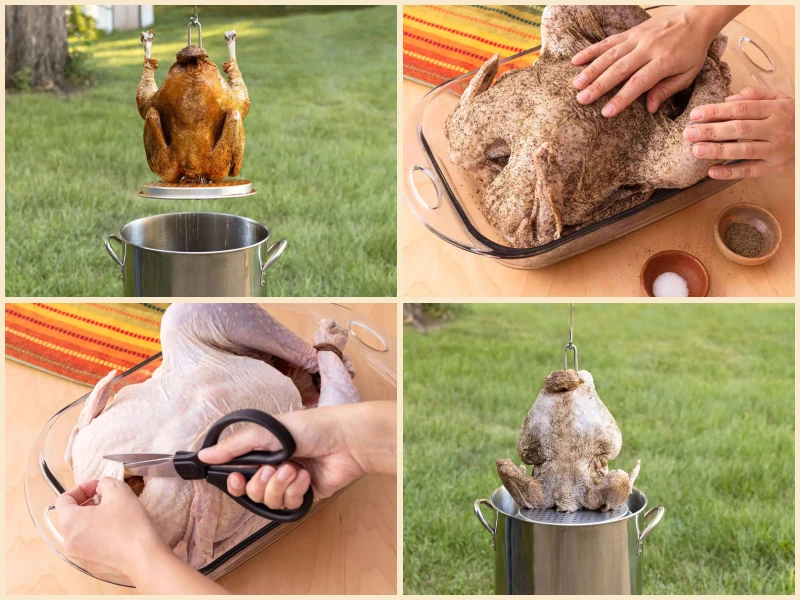

Origin and History of Deep Fried Turkey
Deep-frying turkey is a popular cooking method in the United States, especially during Thanksgiving and other holiday celebrations. The technique of frying a whole turkey emerged in the Southern United States, where outdoor cooking is a tradition. It is said that the practice began in the early 20th century, with Louisiana being one of the first states to perfect the technique. Over the years, deep-fried turkey became famous for its crispy skin and juicy meat, quickly becoming a favorite alternative to oven-roasted turkey.
Regional Characteristics
While deep-fried turkey is now enjoyed across the U.S., it is particularly popular in the southern states. In Louisiana, for example, where Cajun cuisine reigns supreme, deep-fried turkey is often seasoned with bold spices, such as Cajun seasoning or injected with flavorful marinades. This regional touch adds a unique twist to the dish, creating a savory, smoky flavor that distinguishes it from the plain, classic roasted turkey. In other parts of the U.S., the bird is seasoned more simply with salt and pepper to allow the natural flavor of the turkey to shine through.
What Sets Deep Fried Turkey Apart?
Deep-fried turkey stands out from other turkey cooking methods, such as roasting or grilling, primarily due to its texture and flavor. The frying process locks in moisture, resulting in a bird that is exceptionally juicy on the inside while the skin becomes golden and crispy. This is in contrast to roasted turkey, which, while flavorful, tends to have drier meat and a softer skin. Additionally, frying a turkey cooks the bird much fasterabout 3.5 minutes per poundwhile roasting can take a couple of hours. The high cooking temperature also imparts a unique smoky flavor to the turkey, especially when fried with peanut oil, which has a high smoke point and neutral flavor.
Where Is Deep Fried Turkey Typically Served?
Deep-fried turkey is often the centerpiece of a festive meal. It is especially popular during Thanksgiving and Christmas, as well as at family gatherings, barbecues, and tailgates. In southern states, where the dish originated, it may be a regular feature at holiday tables, but its popularity has spread across the country. Because of its outdoor cooking method, deep-fried turkey is also commonly prepared at large gatherings where guests can enjoy the spectacle of the bird being lowered into the hot oil. It pairs well with traditional sides such as mashed potatoes, stuffing, green bean casserole, and cranberry sauce, making it a versatile choice for any occasion.
Interesting Facts about Deep Fried Turkey
Deep frying a turkey might seem like a simple method, but there are a few important safety tips and fascinating facts that make this dish stand out. First, it is essential to ensure that the turkey is completely thawed before frying. Any frozen parts of the bird could cause the hot oil to erupt, resulting in a dangerous fire hazard. That's why deep frying is typically done outdoors, away from any flammable structures. Furthermore, peanut oil is preferred for frying because of its high smoke point, but it is also a favorite due to its mild taste that doesnt overpower the turkeys natural flavors.
Additionally, frying a turkey is faster than roastingabout 35 minutes for a 10-pound birdmaking it an ideal choice for those who want to enjoy a quick but delicious turkey dinner. However, deep-frying also creates a more intense flavor due to the crispy skin and rich, juicy interior. If youre cooking multiple turkeys for a crowd, deep frying is a great option to keep the line moving and satisfy a large group quickly.
You can listen to this recipe in AI audio format. Simply click the play button below to listen to the content in a format that suits you best. It’s a great way to absorb information on the go!
FAQ about Simple Deep Fried Turkey Recipe
Comments
Sharon Collins
02/01/2023 06:22:32 AM
I have cooked turkey using this method several times, and it has always turned out wonderfully. A helpful tip is to remember to purchase additional turkey thighs or legs to make gravy since there won't be pan drippings with the deep-fry technique. You'll need to pan-fry the thawed legs/thighs in the oven to create your grandma's favorite gravy recipe! When preparing the bird, it is crucial to ensure that there is no ice or frozen area anywhere on the bird. Neglecting this can lead to a dangerous situation like an explosion when lowering the bird into the hot oil, even if the flame is extinguished. Follow these safety precautions, especially when doing it outdoors and never on your porch or deck. Maintain a safe oil level with at least 5 inches of space between the oil and the top of the pot because the oil will rise when the bird is added. Remember to turn off the flame before inserting or removing the bird to prevent oil from igniting over the pot's edge. Have a fire extinguisher ready for oil fires just in case. This process requires careful attention to safety measures. As an alternative, consider using one of the newer electric turkey deep fryers, such as those made by Butterball.
Linda Roberts
02/24/2025 03:39:48 AM
It is more flavorful if you skip the thawing process.
Donald Lee
09/29/2023 07:57:12 PM
This was my first attempt at deep frying a turkey, and it was a success! Next time, I plan to inject it with fresh garlic butter for an even more flavorful experience.
Carol Lewis
03/31/2024 06:35:06 PM
So simple and delightful! I have a strong preference for deep-frying turkey over oven-roasting it. I typically fry 4-5 turkeys each year, and it's always a hit with friends and family.
Charles Smith
12/21/2023 05:33:27 AM
I prepared it for a bachelor party and it was a big hit.
Helen Green
12/21/2022 12:48:00 AM
I can't get over how crispy these are! I have my son help me lower them into the pot because I'm not quite strong enough :)


